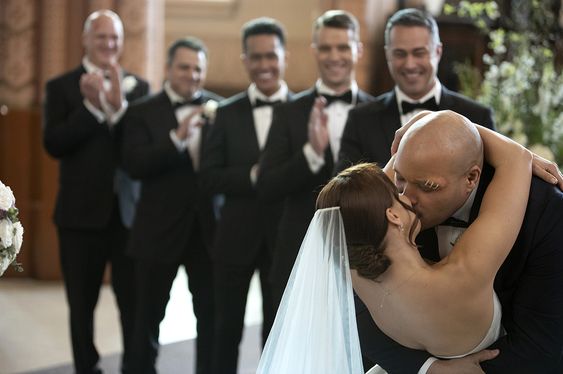
In the latest episode of Chicago Fire, viewers were left in shock after a dramatic turn of events culminated in a double firing that many never anticipated. This episode, titled “First Damon. Now?”, not only continued to explore the intense dynamics within Firehouse 51 but also highlighted the consequences of personal and professional decisions. Here’s a breakdown of the episode’s conclusion and the implications of the unexpected firings.
The Build-Up to the Firings
As the episode unfolded, tensions within Firehouse 51 reached a boiling point. The narrative centered around the challenges the team faced, both on and off the field, as they navigated the demanding environment of firefighting while dealing with personal conflicts. The focus on the character Damon, who had already faced significant repercussions for his actions, set the stage for the turmoil to come.
Damon’s previous firing created ripples among his colleagues, raising questions about loyalty and accountability. This theme of consequences was palpable throughout the episode, as characters grappled with their decisions and the potential fallout from them.
The Climactic Decision
In the final act, the atmosphere in Firehouse 51 turned tense as key figures confronted each other about the moral dilemmas they had faced. The climax came when two beloved characters—whose roles had become increasingly complex—were caught in a web of their choices. Their fates hung in the balance as the leadership of the firehouse assessed the impact of their actions on the team’s integrity and effectiveness.
As the commanding officers deliberated, viewers were left on the edge of their seats, anticipating a resolution that would either bring closure or escalate the drama. The decision to fire not just one, but two characters was a bold move that sent shockwaves through the fandom.
The Aftermath of the Double Firing
The repercussions of the double firing reverberated throughout Firehouse 51 and the wider community. Characters who had previously supported the fired individuals were left grappling with feelings of betrayal, confusion, and sadness. This development sparked conversations among the team about loyalty, the consequences of one’s actions, and the fine line between personal responsibility and collective accountability.
The Implications for Future Episodes
The double firing raises significant questions for the direction of Chicago Fire as it moves forward. With the departure of key characters, the dynamics within Firehouse 51 will undoubtedly shift. Viewers can expect to see the remaining firefighters adjust to their new reality, facing both emotional and operational challenges as they strive to maintain the effectiveness of their unit.
Moreover, the writers have set the stage for potential new story arcs, including the introduction of new characters who could fill the void left by the departures. The show’s commitment to exploring the complexities of relationships, loyalty, and the impact of choices ensures that the aftermath of this episode will resonate for some time.
Conclusion
The shocking double firing at the end of Chicago Fire Season 13, Episode 4, not only serves as a pivotal moment in the storyline but also underscores the themes of accountability and the consequences of personal choices. As Firehouse 51 grapples with the fallout, fans will be eagerly anticipating how the show will navigate this unexpected twist in the narrative. Will the remaining characters rise to the occasion and strengthen their bonds, or will the rift created by these firings lead to further turmoil? Only time will tell as the season unfolds.